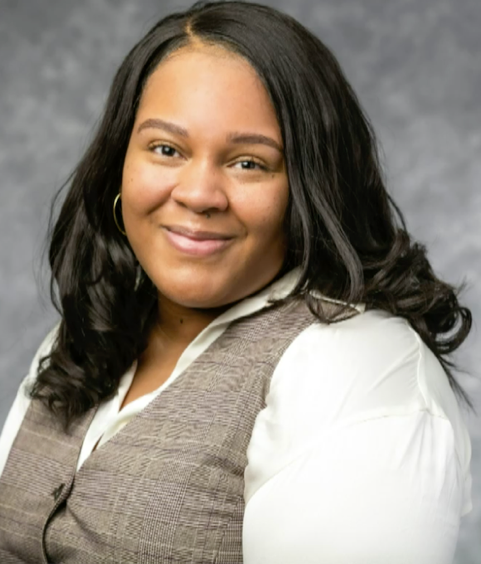MD PhD Trainee (4th Year Graduate Student)

I work in Kristyn Masters’ lab. Our lab uses biomaterials to design disease inspired scaffolds that closely recapitulate diseased aortic valves. We use these designed platforms to interrogate questions related to the progression of aortic valve stenosis. Largely we are interested in understanding the sex differences of AVS in which males have more calcification and females have more fibrosis.
What is your education/career background?
I attended University of Maryland Baltimore County (UMBC) for my undergraduate studies. While at UMBC I was a part of the Meyerhoff Scholars Program. This scholarship program was founded to increase the number of historically underrepresented individuals achieve STEM PhDs and MD/PhDs. This program not only gave me a strong academic foundation from which to build upon in my graduate studies but also helped me develop my love for biomedical research. As an undergraduate researcher I worked at Johns Hopkins School of Public Health on estrogen receptor mediated sex differences in myocarditis with DeLisa Fairweather. This work resulted in two co-author publications. After graduating from UMBC in 2016 I did a post-baccalaureate program at Mayo clinic, working with Lisa Schimmenti to investigate key mechanisms of common forms of genetic hearing loss. In August of 2018 I matriculated into the UW-Madison Medical Scientist Training Program. I have been completing my graduate studies in the Cellular and Molecular Biology Training program in Kristyn Masters lab since 2020.
How have you navigated a career in STEM as a woman/underrepresented minority?
I have had many unique experiences and challenges as a black woman in biomedical research and medicine. My goal has also been to use my unique perspectives to make the training environment more inclusive for students like me that have been historically underrepresented in medicine. I have also strived to serve as a mentor and advocate for students that are beginning their training. I hope these efforts will help continue to make the scientific community as a whole become more inclusive so we can all benefit from diverse perspectives, experiences and ideas.
What advice do you have for women/underrepresented groups pursuing an education/career in STEM?
My main advice is to keep going and to be kind to yourself. Before I began my training, I had a naive viewpoint that everything would go perfectly in my training and the key to being successful was to having a perfect training experience. This was not my experience, I have endured many academic, professional, and personal set-backs. But through these challenges I have remained persistent on continuing and finishing my degrees. Looking back this was key, because while everything didn’t go perfectly according to plan, I have made great strides and had many successes from being persistent. I have also tried to be kind to myself, trying to practice the ideal that perfection is an ideal rarely achieved and there is so much more to learn from setbacks.
I would also say to not forget to HAVE FUN! Science is so much fun, and research is so engaging and exciting to be a part of. Sometimes that is easily forgotten during our training and often replaced with lots of stress, uncertainty, and frustration. But don’t forget why you fell in love with science in the first place!
What do you enjoy most about your career/current role?
I love doing research, I love how it allows you to use your creativity to design new projects. I also love the excitement I get from being the first person to figure something out. As a graduate student there is often a lot of stress but there is so much to enjoy as well! I love planning experiments. I love the thrill I get from putting together pieces of information from reviewing literature to design the most interesting question to ask.
What does diversity, inclusivity, and equity look like to you in your job sector? How do you incorporate DEI in your position?
Diversity, inclusivity, and equity is very important to me as a graduate student and trainee in the MD-PhD program. I try to incorporate DEI through curriculum design, advocacy, and outreach efforts. I have made implicit training curricula for MD-PhD students and first-year-medical-students. These curricula are designed to introduce learners to the concept of bias and discuss ways to reduce bias. I also attend many outreach events to talk with students historically underrepresented in medicine and research about graduate school. I also think it’s important to practice advocacy when I can and have helped plan and attend rallies advocating for improving the health outcomes for black patients. Lastly, it is important to be an active learner in issues related to DEI and I attend many interesting talks on campus and at national meetings.
What is your favorite way to unwind?
I enjoy reading mystery novels, traveling with my husband, and baking treats for friends and family.
Anything else you would like to add:
Thank you so much for highlighting the amazing DEI work that women are doing on campus!